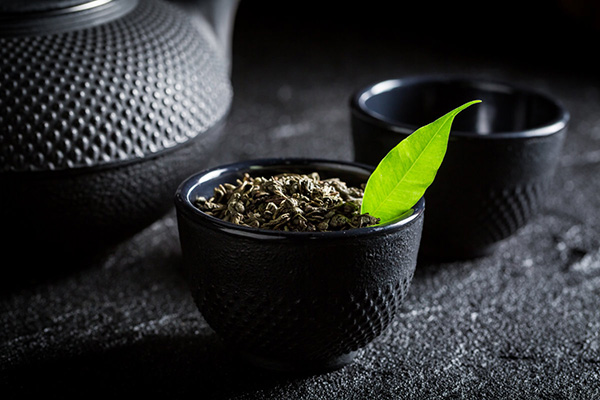Tea (Camellia sinensis L.) is regarded as one of the most popular drinks in the world for over thousands of years. Tea is not only good-tasting and refreshing, but also has been reported to be beneficial for human health and help reduce the chance of obesity, as well as protect against cardiovascular diseases and cancer. However, along with the increasing need for tea products worldwide, tea adulteration has become a common practice in the tea market. Therefore, to protect the right of consumers, it is important to detect the adulterations in various types of tea products.

Lifeasible is a leading company with rich experience in the detection and identification of tea adulterations. We can test many types of adulterations in tea products, including artificial coloring and facing, addition of foreign materials, as well as mislabeling of geographical and/or botanical origins.
Tea leaves are frequently dyed with artificial color to conceal damage or inferiority. The commonly used colorants are azo dyes such as sunset yellow, tartrazine, carmosine, brilliant blue, and indigo carmine. Sometimes, tea leaves which have been damaged during processing can be faced solely to improve their appearance or weight. Moreover, tea has also been found to be adulterated with starch, sand, china clay, french chalk, iron fillings, chicory, lather flakes, caffeine, catechu, used tea leaves, and many more. We provide many physiochemical and spectroscopic methods for the detection of these foreign materials. For example, catechu in tea can be detected by the addition of lead acetate and followed by silver nitrate. The appearance of grayish cloudiness indicated the presence of catechu. Furthermore, Fourier transform infrared (FT-IR) spectroscopy can be used for rapid detection of talcum powder.
The taste of tea is primarily determined by specific varieties, and can be greatly influenced by environmental factors. Therefore, the price of tea largely depends on their origins. Thus it is essential for manufacturers to label the geographical and/or botanical origins of their products correctly. The metabolites vary depending on tea varieties and/or geographical origins and can be used as markers to differentiate these adulterations. Lifeasible provides various analytical techniques to characterize the geographic and/or botanical origins of tea samples. For determination of elemental contents, we are capable of performing atomic absorption spectrometry (AAS), inductive coupled plasma atomic emission spectrometry (ICP-AES), and ICP mass spectrometry (ICP-MS). For determination of phenolic constituents and free amino acid contents, high performance liquid chromatography-mass spectrometry (HPLC-MS) will be applied. We can also perform colorimetric measurements for determination of free amino acid contents, and gas chromatography (GC) for detection of volatile components, as well as capillary electrophoresis for testing major amino acid and theaflavin contents.
Furthermore, spectroscopy and DNA based methods are also available for testing of geographical and/or botanical origins. In addition, we also provide isotope ratio mass spectrometry (IR-MS) technique for discrimination of the geographical and/or botanical origins of tea samples. IR-MS is based on the isotopic ratios of C, N, H, and O, wherein 18O/16O and 2H/1H are related to the meteorological cycle of evaporation, condensation, and precipitation of water; 13C/12C is affected by the biochemical fixing of CO2 (C3 or C4 plant); and 15N/14N signatures of plants can be affected by a wide variety of natural environmental factors such as water stress, climatic conditions, salinity, and soil processes, particularly de-nitrification and mineralization.
With full-fledged analytical platforms and experts in biochemistry and statistics, Lifeasible offers one-stop customized solutions for clients worldwide from sample preparation to data collection, analysis, and interpretation. Our services are featured with high accuracy and sensitivity, short turnaround times, as well as competitive prices. If you require further information, please feel free to contact us.